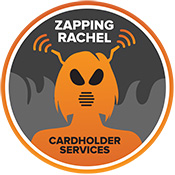FIL-30-2014
June 19, 2014
Intercompany Income Tax Allocation Agreements
Addendum to Policy Statement
Printable Format:
Summary:
The federal banking agencies have approved an addendum that supplements and clarifies the 1998 Interagency Policy Statement on Income Tax Allocation in a Holding Company Structure (Interagency Policy Statement). The agencies are issuing the addendum to ensure that insured depository institutions (IDIs) in a consolidated group maintain an appropriate relationship regarding the payment of taxes and the treatment of tax refunds.
Statement of Applicability to Institutions Under $1 Billion in Total Assets: This Financial Institution Letter applies to all FDIC-supervised banks and savings associations, including community institutions, that (together with a parent holding company) file tax returns as members of a consolidated group.
Highlights:
- Since the adoption of the 1998 Interagency Policy Statement, disputes have occurred between holding companies in bankruptcy and failed IDIs regarding the ownership of tax refunds generated by the institutions.
- The addendum to the Interagency Policy Statement is intended to ensure that tax allocation agreements explicitly acknowledge that an agency relationship exists between a holding company and its subsidiary institution with respect to tax refunds attributable to the institution.
- The addendum directs institutions and their holding companies to review their agreements to ensure they achieve this objective with respect to tax refunds, and they do not contain other language to suggest a contrary intent.
- The addendum also includes a sample paragraph for institutions and their holding companies to use in their tax allocation agreements.
- In addition, the addendum clarifies how certain requirements of Sections 23A and 23B of the Federal Reserve Act apply to tax allocation agreements.
- The agencies expect institutions and holding companies to implement fully the addendum to the Interagency Policy Statement as soon as reasonably possible, which the agencies expect would not be later than October 31, 2014.
- The addendum and the Interagency Policy Statement do not apply to an institution, its holding company, or other affiliates if the holding company is not subject to corporate income taxes at the federal or state level.

